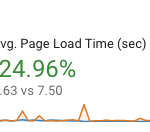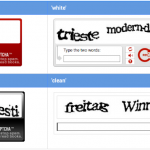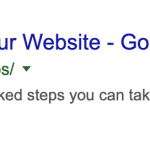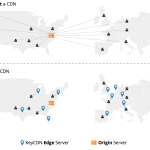Google’s Matt Cutts Tells us What to Expect
The SEO Arms Race
Ever since there have been search engines, search engine optimizers (SEOs) have tried various tactics to rank well – often straying into deceptive or ‘black hat’ techniques like auto generated content, websites, and link networks. As search engines have gotten better at detecting these spammy techniques, the spammers have gotten more clever. The latest major change on the Google side began in April 2012, with the Penguin update.
Major Features of the Last Couple Updates
- Over-optimization penalty – This is the most interesting update to me, as it strikes fear into the hearts of even the most conservative SEOs. Aren’t we supposed to be optimizing our websites for search engines? How do we know when we have optimized it too much? For the most part, sites were penalized for reusing the exact same phrase in their anchor text too much, although too much keyword stuffing into meta tags or page text could incur a penalty as well. For more conservative site operators, it’s a warning to be careful with optimization efforts, and a reward for not making users suffer through keyword-stuffed text.
- Exact Match Domain – Google significantly reduced the benefit that a domain would get if their domain name matched a target keyword phrase – e.g. a domain like ‘keyword1-keyword2.com’ likely saw its traffic drop for that keyword phrase.
- Unnatural Link Penalty – A manually-issued penalty that Google can place on sites when they determine that a site is widely attempting to manipulate the search engine results by creating links. This includes sites who get too many incoming links that all use a competitive keyword phrase in the anchor text.
- The Panda Algorithm was created by Google in an attempt to cause low quality sites to be displayed much lower in the search results. Panda was not so much about link profiles as about identifying sites with thin content or duplicate content, where much of the content making up the site also appears on other websites.
The Next Google Update – Expected Late May/Early June 2013
Here is Matt Cutts, Google’s SEO/spam fighting front man, on what to expect from the next Google update, which is due any time now:
My Take – What He Said and Didn’t Say
- Advertorials – This is paid content that is made to look like genuine, organic content. Matt says it shouldn’t flow pagerank to the target site, but doesn’t mention penalizing them either. If Google identifies that some of your incoming links are actually advertorials, Google may simply ignore those links, instead of penalizing the site. This part will always be somewhat of an arms race. Everyone knows search engines don’t want to give credit for advertising or paid links, so whoever is clever enough to fool the search engines can make a lot of money in the short term. If traffic drops after an update, it could be difficult to identify which sites are causing the problem.
Google is trying to enlist webmasters around the world in helping them identify link selling websites – by giving webmasters the option to disavow an incoming link, some percentage of webmasters who have bought links in the past will use this tool to distance themselves from the site, and Google can then use the aggregate data from many websites to identify link sellers. SEObook.com has a great, detailed article about how Google has ignited a link removal frenzy, and its effect on websites. - Google is specifically going after more traditionally spammy queries like porn, so less spammy queries should see fewer changes.
- They are trying to go upstream to deny value to link spammers, using a more sophisticated link analysis system. The net result of this is we can expect more legitimate links to become more powerful and relevant, while spammy links should become less useful.
- Google is getting better at detecting hacked websites (unknowingly hosting malware, etc.). If Google detects a problem, they will attempt to contact the website owner using Google webmaster tools. if you don’t already have a free account, I highly recommend it.
- Improved authority detection for a certain topic, including smaller sites. Hopefully this will help level the playing field, as large sites have been dominating Google for all kinds of niche queries over the last few years. It’s another reason to build content and become a thought leader.
- Some changes to their habit of showing a big chunk of results from one website. If the user has already seen a chunk from a certain website on one page, they are less likely to see it on subsequent pages, and less likely to see it on the first page. I really like this change personally, as I am often having to wade through many links to the same website on a SERP. I never found it very useful to see a dozen links from the same website.
- Some changes may actually help sites have been hurt by previous versions of Panda or Penguin, if Google finds other quality signals that make them think the site is a good one.
Want to read more about the upcoming update? Here are some other sites I found worth reading:
- Webmaster World Discussion
- 10 SEO myths about Panda & Penguin updates
- Guide to avoiding the over-optimization penalty
- Detailed guide to the differences between Panda & the over-optimization penalty
What are your SEO experiences over the last year or so? Has Google succeeded in making you walk back any of your link building or optimization efforts, for fear of a penalty?
More from Fourth Wave
David Norris
Latest posts by David Norris (see all)
- NetSuite Announces Plans to End Promotion Functionality for Site Builder - January 16, 2020
- Most NetSuite Websites Are No Longer Tracking Safari Conversions for Adwords - November 20, 2017
- Make Your NetSuite Site Builder Site Secure – HTTPS Throughout - May 28, 2017
- An Introduction to Automating XML Sitemaps for NetSuite Companies - November 13, 2016
- An Introduction to NetSuite’s Reference Checkout & My Account Bundles - April 18, 2016






